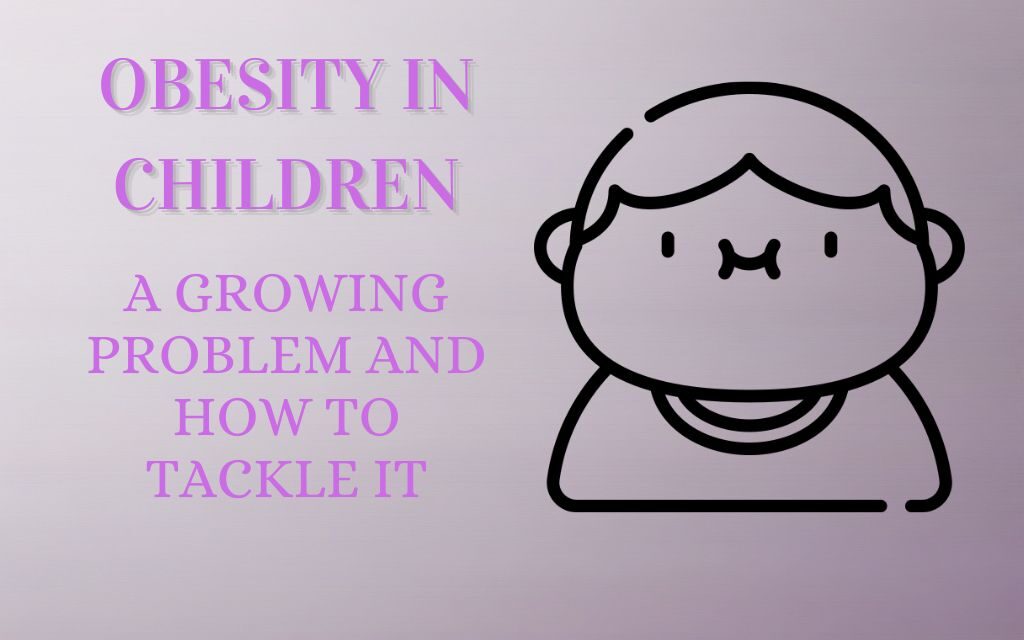Childhood obesity has become a significant concern in recent years, with an alarming increase in its prevalence worldwide. The rising rates of obesity in children are a cause for worry, as they pose serious health risks and can have long-lasting effects on a child’s well-being. In this article, we will explore the causes, consequences, and prevention strategies related to childhood obesity. By understanding the factors contributing to this issue and implementing effective interventions, we can work towards a healthier future for our children.
Table of Contents
How Bad is Obesity Affecting Today’s Children?
Childhood obesity has become a pressing public health concern in recent years, with its prevalence reaching alarming levels worldwide. Defined as an excess accumulation of body fat in children and adolescents, this condition poses significant risks to their physical and mental well-being.
Here’s a breakdown of how bad it’s affecting children today:
Prevalence
According to the Centers for Disease Control and Prevention (CDC), in the United States, for children and adolescents aged 2-19 years (2017-2020 data):
- The prevalence of obesity was 19.7%, which means about 14.7 million children and adolescents were affected.
- Obesity prevalence was even higher among certain populations:
- 26.2% among Hispanic children
- 24.8% among non-Hispanic Black children
- 16.6% among non-Hispanic White children
- 9.0% among non-Hispanic Asian children
Health Consequences
Childhood obesity is linked to a variety of health problems, both immediate and long-term. These include:
- Immediate health risks:
- High blood pressure
- High cholesterol
- Type 2 diabetes
- Breathing problems like asthma and sleep apnea
- Joint problems
- Fatty liver disease
- Long-term health risks:
- Increased risk of heart disease, stroke, and certain cancers in adulthood
- Psychological effects like depression and low self-esteem due to bullying or body image issues
Social and Emotional Impact:
- Children with obesity are more likely to be bullied or teased by their peers.
- They may experience social isolation and low self-esteem.
- This can negatively impact their emotional well-being and mental health.
Overall Impact:
Childhood obesity not only affects a child’s physical health but also their emotional and social well-being. It can also have a significant financial burden on families and healthcare systems.
Positive Note:
The good news is that childhood obesity is preventable. By promoting healthy eating habits, encouraging regular physical activity, and creating supportive environments, we can help children reach and maintain a healthy weight.
Understanding Weight and Obesity in Children: What to Look For

While weight isn’t the only indicator of health, there are signs that might suggest your child could benefit from healthier weight management habits. This blog post aims to empower you with information, not cause alarm. We’ll explore some signs to consider and provide guidance on navigating healthy weight management for your child.
Remember: Every child grows and develops at their own pace. If you have any concerns about your child’s weight or health, it’s always best to consult with a pediatrician.
Potential Signs to Consider
- Changes in clothing size: Outgrowing clothes more quickly than usual can be a sign of weight gain. However, growth spurts can also cause temporary changes in clothing size.
- Difficulty keeping up with activities: If your child gets winded or tired easily during physical activity, it could be a sign of excess weight impacting their endurance.
- Low energy levels: Constant fatigue or sluggishness can sometimes be related to weight, affecting overall energy expenditure.
- Changes in sleep patterns: Snoring or sleep apnea can be linked to obesity in children.
- Development of certain health conditions: Conditions like high blood pressure, fatty liver disease, or pre-diabetes can be associated with childhood obesity.
- Emotional or social concerns: Children with obesity might experience social isolation, low self-esteem, or bullying due to their weight.
Important Note: These signs can also be indicators of other health issues. It’s crucial to consult a pediatrician for a proper evaluation.
Promoting a Healthy Weight Lifestyle
If your pediatrician suggests weight management for your child, here are some positive steps you can take together:
- Focus on healthy eating: Make gradual changes towards a balanced diet rich in fruits, vegetables, whole grains, and lean protein. Limit processed foods, sugary drinks, and unhealthy fats.
- Incorporate physical activity: Encourage daily physical activity that your child enjoys. This could be anything from playing outside to joining a sports team.
- Make it a family effort: Healthy habits are easier to maintain when the whole family is involved. Encourage everyone to participate in healthy meals and physical activities together.
- Positive reinforcement: Focus on praising your child’s effort and progress rather than just weight loss. Celebrate non-scale victories like trying new healthy foods or completing a challenging activity.
- Seek professional guidance: A registered dietitian or pediatrician can provide personalized advice and support for your child’s weight management journey.
Exploring Different Obesity Solutions for Kids
Childhood obesity can be a complex issue, and sometimes, despite our best efforts, traditional weight management strategies may not be enough. In those cases, exploring medical interventions under the careful guidance of a pediatrician and potentially a weight loss specialist might become a necessary step.
While not a first-line treatment, bariatric surgery (procedures like mini gastric sleeve) is an option for some severely obese adolescents (typically 14-18 years old) who haven’t responded adequately to lifestyle changes. It’s a major medical intervention and requires careful evaluation by a team of specialists.
In Egypt, you can trust Dr. Ahmad Shabana’s medical team. They have already conducted multiple weight loss surgeries for children and helped them lead healthier lives free of pain.
Important Considerations
Safety First: Medical interventions are not without risks. A pediatrician and weight loss specialist will thoroughly assess your child’s individual situation and weigh the potential benefits against the risks before recommending any intervention.
Not a Quick Fix: Medical interventions, like bariatric surgery, are tools to support healthy weight management, but they don’t replace the importance of healthy eating habits and physical activity. Long-term lifestyle changes are still crucial for success.
Psychological Support: Childhood obesity can take a toll on a child’s emotional well-being. Including a psychologist or therapist as part of the treatment plan can help your child navigate the emotional challenges associated with weight management.
The Decision-Making Process
The decision to pursue a medical intervention should be made collaboratively between you, your child’s pediatrician, and a weight loss specialist, if necessary. Here are some key factors to consider:
- Severity of your child’s obesity
- Effectiveness of previous weight management attempts
- Your child’s physical and mental health
- Potential risks and benefits of the specific intervention
- Your child’s understanding and willingness to participate in ongoing treatment
The goal is to create a comprehensive treatment plan that addresses your child’s specific needs and promotes long-term health and well-being. If traditional methods prove insufficient, exploring medical interventions under proper medical guidance might be the next step to help your child achieve a healthier weight and a positive outlook on life.
Mini Bariatric Surgeries for Children
Unlike traditional bariatric surgery, mini bariatric procedures are performed using laparoscopic techniques. This means surgeons utilize tiny incisions and specialized tools to access the abdomen, minimizing scarring and discomfort.
Types of Mini Bariatric Procedures for Children
Mini Gastric Sleeve (MGS): This is the most common type of mini bariatric surgery for children. During the MGS, a portion of the stomach is removed laparoscopically, restricting the amount of food the stomach can hold, leading to reduced calorie intake and weight loss.
- Mini Gastric Sleeve (MGS): This is the most common type of mini bariatric surgery for children. During the MGS, a portion of the stomach is removed laparoscopically, restricting the amount of food the stomach can hold, leading to reduced calorie intake and weight loss.
- Mini Gastric Plication: Like MGS, mini gastric plication utilizes laparoscopic techniques with tiny incisions and specialized tools. However, instead of removing a portion of the stomach, surgeons use sutures to fold and create internal pleats in the stomach wall (plications), reducing its overall volume. This restricts the amount of food the stomach can hold, leading to decreased calorie intake and promoting weight loss.
Benefits of Mini Bariatric Surgery for Children
- Improved Weight Control: MGS has been shown to be effective in helping severely obese children achieve significant and sustained weight loss. This can lead to a multitude of health benefits in the long run.
- Reduced Comorbidities: Childhood obesity is often linked to other health problems like type 2 diabetes, sleep apnea, and high blood pressure. Weight loss achieved through MGS can improve these comorbidities and overall health.
- Improved Quality of Life: Shedding excess weight can boost a child’s confidence, energy levels, and participation in physical activities, leading to a better quality of life.
- Minimally Invasive: Laparoscopic techniques used in mini bariatric surgery result in smaller incisions, leading to:
- Shorter recovery time: Children typically recover faster from mini bariatric surgery compared to traditional open surgery.
- Reduced pain: Smaller incisions minimize post-operative pain, allowing for a smoother recovery experience for the child.
- Minimal scarring: Laparoscopic techniques result in minimal scarring, which can be a significant cosmetic benefit for children.
Who is a Candidate?
Mini bariatric surgery is not a one-size-fits-all solution. It’s typically considered for severely obese adolescents (usually 11-18 years old) who haven’t responded adequately to lifestyle changes and medication under strict medical supervision.
Mini bariatric surgery, when carefully considered and performed by a qualified pediatric surgeon, such as Dr Ahmed Shabana, can offer a powerful tool to help severely obese children achieve significant weight loss and improve their overall health and well-being. The minimally invasive nature of the procedures, with their short recovery time and zero pain, can make the journey seem less daunting for both the child and the family.

